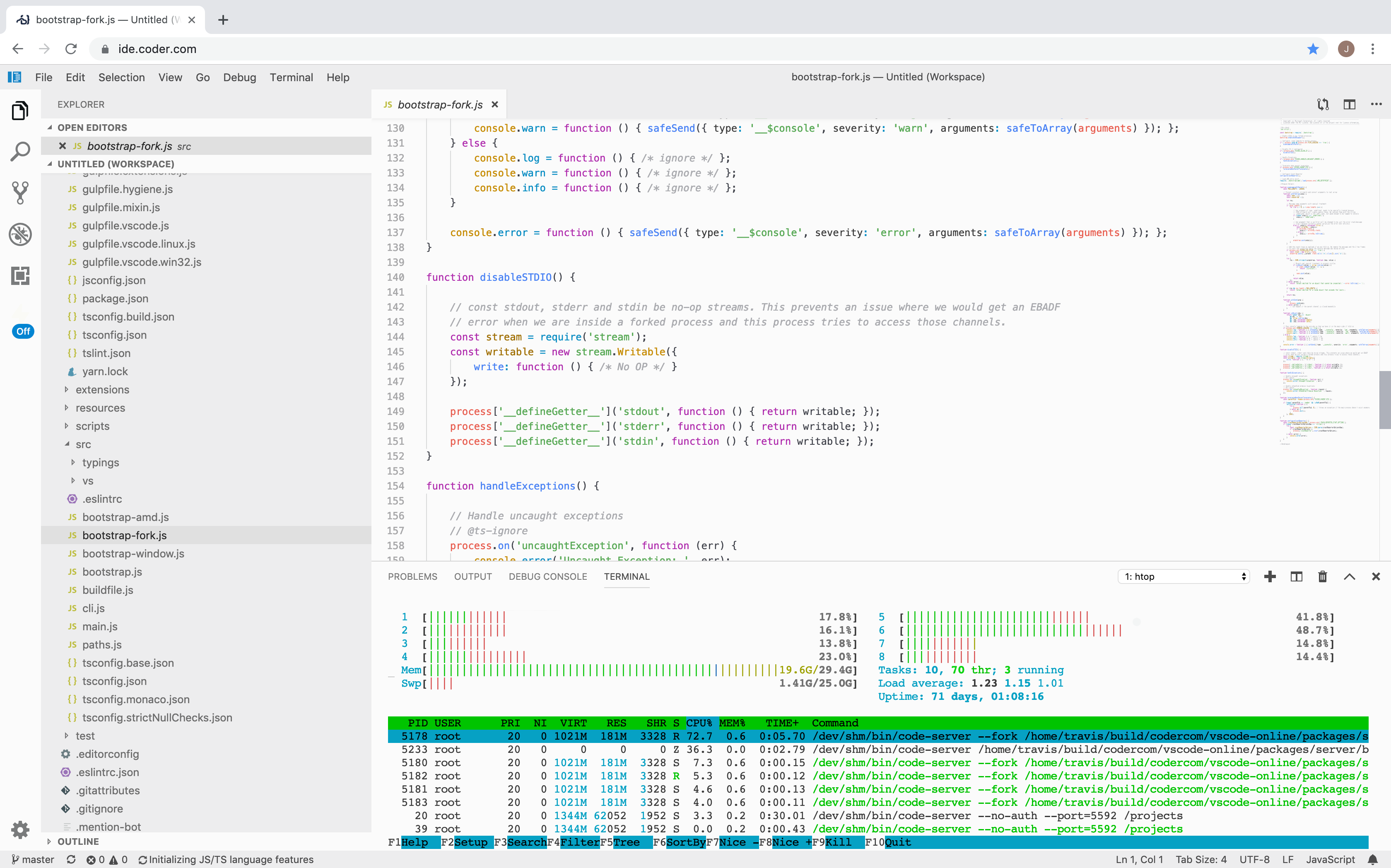* Replace evaluations with proxies and messages * Return proxies synchronously Otherwise events can be lost. * Ensure events cannot be missed * Refactor remaining fills * Use more up-to-date version of util For callbackify. * Wait for dispose to come back before removing This prevents issues with the "done" event not always being the last event fired. For example a socket might close and then end, but only if the caller called end. * Remove old node-pty tests * Fix emitting events twice on duplex streams * Preserve environment when spawning processes * Throw a better error if the proxy doesn't exist * Remove rimraf dependency from ide * Update net.Server.listening * Use exit event instead of killed Doesn't look like killed is even a thing. * Add response timeout to server * Fix trash * Require node-pty & spdlog after they get unpackaged This fixes an error when running in the binary. * Fix errors in down emitter preventing reconnecting * Fix disposing proxies when nothing listens to "error" event * Refactor event tests to use jest.fn() * Reject proxy call when disconnected Otherwise it'll wait for the timeout which is a waste of time since we already know the connection is dead. * Use nbin for binary packaging * Remove additional module requires * Attempt to remove require for local bootstrap-fork * Externalize fsevents
code-server
code-server is VS Code running on a remote server, accessible through the browser.
Try it out:
docker run -t -p 127.0.0.1:8443:8443 -v "${PWD}:/root/project" codercom/code-server code-server --allow-http --no-auth
- Code on your Chromebook, tablet, and laptop with a consistent dev environment.
- If you have a Windows or Mac workstation, more easily develop for Linux.
- Take advantage of large cloud servers to speed up tests, compilations, downloads, and more.
- Preserve battery life when you're on the go.
- All intensive computation runs on your server.
- You're no longer running excess instances of Chrome.
Getting Started
Hosted
Try code-server now for free at coder.com.
Docker
See docker oneliner mentioned above. Dockerfile is at /Dockerfile.
Binaries
-
Download a binary (Linux and OS X supported. Windows coming soon)
-
Start the binary with the project directory as the first argument
code-server <initial directory to open>You will be prompted to enter the password shown in the CLI
code-servershould now be running at https://localhost:8443.code-server uses a self-signed SSL certificate that may prompt your browser to ask you some additional questions before you proceed. Please read here for more information.
For detailed instructions and troubleshooting, see the self-hosted quick start guide.
Quickstart guides for Google Cloud, AWS, and Digital Ocean.
How to secure your setup.
Development
Known Issues
- Creating custom VS Code extensions and debugging them doesn't work.
Future
- Windows support.
- Electron and Chrome OS applications to bridge the gap between local<->remote.
- Run VS Code unit tests against our builds to ensure features work as expected.
Notes
- At the moment we can't use the official VSCode Marketplace. We've created a custom extension marketplace focused around open-sourced extensions. However, if you have access to the
.vsixfile, you can manually install the extension.
Contributing
Development guides are coming soon.
License
Enterprise
Visit our enterprise page for more information about our enterprise offering.
Commercialization
If you would like to commercialize code-server, please contact contact@coder.com.




